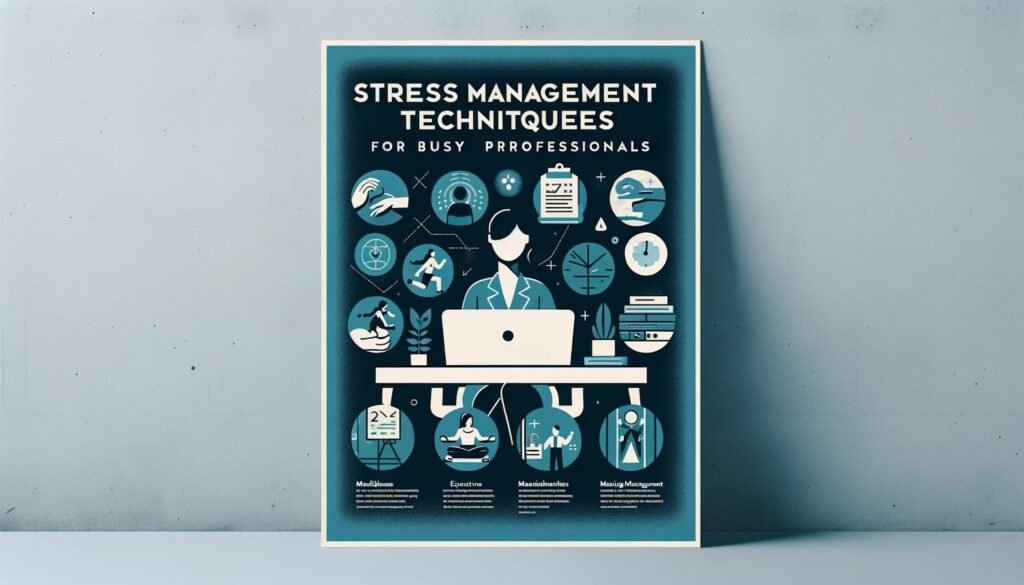
In today’s fast-paced work environment, stress is a common denominator affecting professionals across various industries. Balancing work demands with personal life can often seem like an uphill battle, leading to increased stress levels that can affect health, productivity, and overall quality of life. This blog explores effective stress management techniques specifically tailored for busy professionals.
Contents
Understanding Stress
Before diving into stress management strategies, it’s crucial to understand what stress is and how it affects us. Stress is the body’s response to any demand or challenge, which can be triggered by both good and bad experiences. When faced with a challenge, our body releases hormones such as cortisol and adrenaline, preparing us to either “fight” or “flee” from the situation. This response can be beneficial in short bursts but damaging over long periods.
Effective Stress Management Techniques
1. Time Management
One of the most significant sources of stress for professionals is the feeling of being overwhelmed by tasks. Effective time management is key.
- Prioritize Tasks: Use tools like the Eisenhower Box to distinguish between what’s urgent and important.
- Break Tasks Into Smaller Steps: This makes them more manageable and less daunting.
- Use Technology: Leverage apps and tools for better task management.
2. Mindfulness and Meditation
Mindfulness and meditation have proven benefits in reducing stress by enhancing focus and promoting a calm, clear mind.
- Daily Meditation: Start or end your day with 10 minutes of meditation.
- Mindful Breathing: Practice deep breathing exercises during breaks to reset your mind.
- Mindfulness Apps: Use apps that guide you through short mindfulness exercises.
3. Physical Activity
Regular physical activity is effective in reducing stress levels and improving mood.
- Exercise Regularly: Incorporate at least 30 minutes of moderate exercise into your daily routine.
- Active Breaks: Take short breaks for stretching or a quick walk.
- Desk Exercises: Try simple exercises you can do even at your desk.
4. Set Professional Boundaries
Setting clear boundaries between work and personal life is crucial in managing stress.
- Work-Life Balance: Make a clear distinction between work hours and personal time.
- Learn to Say No: Politely refuse additional responsibilities when your plate is full.
- Digital Detox: Allocate times where you disconnect from work-related communications.
5. Seek Professional Help
If stress becomes overwhelming, professional help can offer strategies to manage it effectively.
- Counseling: Therapists can provide tools and techniques to cope with stress.
- Stress Management Workshops: These can offer new perspectives and strategies.
Conclusion
Managing stress effectively is crucial for maintaining productivity and achieving a healthy work-life balance. By integrating these strategies into your routine, you can not only manage stress better but also enhance your overall well-being.
FAQs about Stress Management for Professionals
Q: How can I identify that I am too stressed?
A: Common signs include irritability, fatigue, difficulty concentrating, and changes in sleep patterns.
Q: Can stress affect my physical health?
A: Yes, chronic stress can lead to health problems like heart disease, weight fluctuations, and decreased immune function.
Q: How often should I practice mindfulness to see benefits?
A: Regular practice, even for a few minutes daily, can provide significant benefits.
Q: What are some quick stress relievers during work hours?
A: Quick stress relievers include deep breathing exercises, a short walk, or a 5-minute meditation.